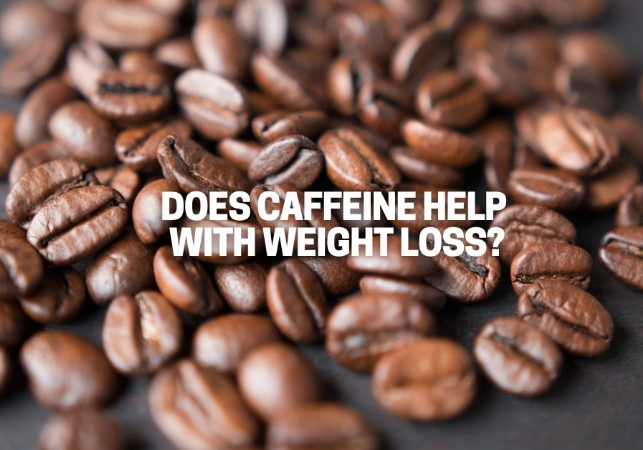If you’ve landed on this page chances are you’ve come across the idea that caffeine might have some benefits when it comes to losing weight. In the analysis that follows I’ll provide a concise yet supported exploration of whether there’s a connection, between your morning cup of joe and your weight loss goals.
Does Caffeine Help with Weight Loss?

Understanding Caffeine
Caffeine is a compound for its stimulating effects, mainly derived from coffee beans. However it can also be found in plants like cocoa, tea, kola nuts, yerba. Guarana. Enough guarana seeds contain a four times more caffeine than coffee beans. When included in weight loss supplements caffeine usually comes in the form of caffeine an bitter powder.
The primary reason why caffeine is commonly used in health supplements is because its believed to assist with weight reduction. In fact it’s the encountered ingredient in fat burners. Even if not explicitly mentioned caffeine may indirectly be present through plant extracts like tea, green coffee, guarana and yerba mate.
Research Findings
Tea and coffee—being two of the consumed beverages globally—have been extensively researched due, to their caffeine content. It’s no surprise that scientists have extensively studied the potential of this compound, in aiding weight loss.
Body Fat
In 2020 a group of researchers from Harvards School of Public Health conducted a 24 week study to investigate the impact of coffee on the risk of developing type 2 diabetes. The study involved 126 participants who were overweight and were randomly assigned to consume either four cups of coffee or four cups of a coffee substitute. Interestingly they found that those who drank the four cups of coffee experienced a decrease in body fat by around 4 percent. Although this wasn’t the focus of their research it was a finding. The researchers theorized that the caffeine present in coffee might have boosted metabolism leading to the observed loss.
Weight Loss Maintenance
While losing weight can be relatively easier keeping it off is often more challenging. Research indicates that a significant portion of lost weight is typically regained within a years. A thorough analysis comprising 29 studies on weight loss revealed that more than half of the weight was regained within the two years and, over 80 percent was regained within five years.
In a study conducted back in 2015 a group of researchers investigated the drinking habits of 494 individuals who successfully maintained their weight loss. They compared this group to a sample of 2129 individuals representing the population. The results revealed that those who were able to sustain their weight loss consumed a amount of caffeinated beverages on a daily basis compared to the general population. This suggests that caffeine might have a role, in supporting weight loss maintenance.
Basal Metabolic Rate
Your basal metabolic rate (BMR) refers to the number of calories your body burns when at rest. Having a BMR can contribute to weight loss. Help you maintain your weight loss.
In a study conducted in 1995 twelve healthy young men were given either 150 ml of coffee or the same amount with an additional 200 mg of caffeine. The participants BMR was measured before after and three hours later. Those who consumed caffeine experienced an increase in their BMR, which remained elevated for the following three hours.
Another previous study examined the effects of consuming 100 mg of caffeine every two hours over a twelve hour period. The findings mirrored those, from the study showing that caffeine led to an energy expenditure increase ranging from 8 11 percent.
Appetite
In 2014 a study was conducted to examine how coffee consumption affects the well being of 84 individuals, over four weeks. The results showed that participants experienced a decrease in body fat and an increase in serotonin, a hormone known for its mood boosting effects.
Interestingly the study also found that levels of ghrelin a hormone for triggering hunger feelings decreased. This suggests that caffeine might play a role in regulating satiety.
Caffeine is commonly found in sports gels and energy drinks and its impact on performance was reviewed in 2001. The review concluded that caffeine can improve speed, output, endurance during training sessions and resistance to fatigue.
Contrary to belief that caffeine promotes burning a study conducted in 2012 focused on how caffeine affects muscle performance. Twelve participants were given either a placebo or a caffeinated drink. The results indicated that those who consumed caffeine showed muscle power.
Exercise Endurance
Caffeine is widely used in energy drinks and sports gels for its ability to enhance performance. A review conducted in 2001 aimed to explore the effects of caffeine, on both competition and training. The results of this review indicate that caffeine can boost speed, productivity, endurance, during workouts and resistance to fatigue.
Based on the study the positive effects of caffeine in these areas can be attributed to its ability to create an environment in the active muscle cells. Interestingly this contradicts a prevailing theory that suggests caffeine primarily promotes burning.
In a 2012 study examining the impact of caffeine on muscle performance twelve participants were divided into two groups; one received a placebo while the other consumed a caffeinated drink. The findings showed that those who consumed caffeine experienced muscle power.
Final Words
Caffeine can potentially offer weight loss benefits among its advantages. However it’s important to remember moderation is key when reaping the benefits of caffeine. To optimize its effects it is advisable to limit intake to no than 400 mg. Moreover, before commencing any weight loss journey it is crucial to consult with your doctor. Seeking their approval. Ensuring that caffeine containing supplements are safe and suitable for your specific circumstances is essential.





















Add comment